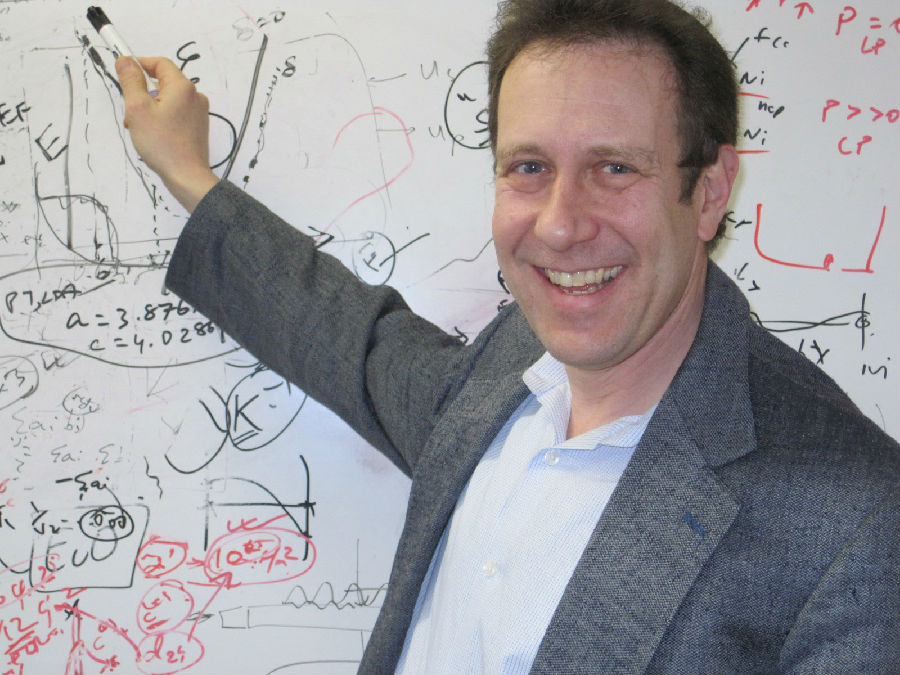Dr. Ronald E. Cohen [Geophysical Laboratory, CIW, USA]
Title: Beyond Conventional Theory for Materials under Extreme Conditions
Time: 11:00 - 12:00 PM, Monday, August 28, 2017
Place: Conference room 410, HPSTAR (Shanghai)
Host: Ho-Kwang Mao
Abstract
In spite of the great success of density functional theory (DFT), the only justification for the use of approximate density functionals is by comparisons with experiments. Some systems are known to be problematic for DFT, such as molecules or materials that are highly correlated or have important dispersion forces. Even in ordinary materials sometimes accuracy greater than can be provided by DFT is required, such as in geophysics. Conventional theory also does not give internal error estimates. Diffusion Monte Carlo (DMC) gives the ground state energy with no uncontrolled approximations, and gives error estimation along with the computed properties. We have applied DMC using the casino and qmcpack codes to high pressure problems including developing a fundamental high pressure scale using cubic Boron Nitride, and constraining the equations of state and phase transitions in SiO2, (Mg,Fe)O, (Mg,Fe)SiO3 and molecular systems such as benzene. DMC gives the ground state energies accurately, but other properties are difficult to obtain. Solids with multi-determinantal ground states remain problematic. Using Dynamical Mean Field Theory (DMFT) with DFT we study materials with strong correlations, and obtain spectral and optical properties, etc., at finite electronic temperatures. We solve self-consistently for the correlated subsystem and for the crystal. The quantum impurity problem is solved using continuous time quantum Monte Carlo with a hybridisation function and impurity levels from the crystal. The crystal problem is solved using DFT with an additional self-energy from the quantum impurity problem. There is multi-loop self-consistency. Using Kristjan Haule's DFT/DMFT code, we have predicted metallisation and the Néel temperature in FeO at high pressures and temperatures, transport in Fe, and studied Fe-superconductors and other systems under pressure. Our predictions for pressure effects on superconductivity in FeSe have recently been confirmed. This work is supported by the ERC Advanced grant ToMCaT and the Carnegie Institution for Science.
Biography of the Speaker:
 Dr. Ronald Cohen is a theorist working on a wide range of materials, but especially materials at extreme conditions and ferroelectrics and other active materials. Ronald Cohen received his PhD in Geology from Harvard University in 1985. He received an NRC fellowship to go to NRL as a postdoc, and was hired as a staff physicist in 1987. From there he was hired as a staff Geophysicist at the Geophysical Laboratory of the Carnegie Institution where he is a Senior Staff Scientist. He received an European Research Council Advanced Grant, Theory of Mantle Core and Technological (ToMCaT) materials which brings him to Europe half time. He is a Professor at University College London since 2013 in the department of Earth Science, London Centre for Nanotechnology and the Department of Physics, and Professor at the Ludwig Maximilians Universit?t in Munich in the Department of Earth and Environmental Sciences since 2015. He is a fellow of the American Physical Society, the American Geophysical Union and the Mineralogical Society of America. He is also a member of the American Chemical Society and AAAS. He won the Dana (2009) and MSA awards (1994) from the Mineralogical Society of America. Has published over 220 papers and has an citation H-index of over 60 according to Google scholar and has given over 235 invited talks. He is active in the Mineral and Rock Physics committee of the American Geophysical Union and has run a series of annual workshops on ferroelectrics since 1990.
Dr. Ronald Cohen is a theorist working on a wide range of materials, but especially materials at extreme conditions and ferroelectrics and other active materials. Ronald Cohen received his PhD in Geology from Harvard University in 1985. He received an NRC fellowship to go to NRL as a postdoc, and was hired as a staff physicist in 1987. From there he was hired as a staff Geophysicist at the Geophysical Laboratory of the Carnegie Institution where he is a Senior Staff Scientist. He received an European Research Council Advanced Grant, Theory of Mantle Core and Technological (ToMCaT) materials which brings him to Europe half time. He is a Professor at University College London since 2013 in the department of Earth Science, London Centre for Nanotechnology and the Department of Physics, and Professor at the Ludwig Maximilians Universit?t in Munich in the Department of Earth and Environmental Sciences since 2015. He is a fellow of the American Physical Society, the American Geophysical Union and the Mineralogical Society of America. He is also a member of the American Chemical Society and AAAS. He won the Dana (2009) and MSA awards (1994) from the Mineralogical Society of America. Has published over 220 papers and has an citation H-index of over 60 according to Google scholar and has given over 235 invited talks. He is active in the Mineral and Rock Physics committee of the American Geophysical Union and has run a series of annual workshops on ferroelectrics since 1990.
